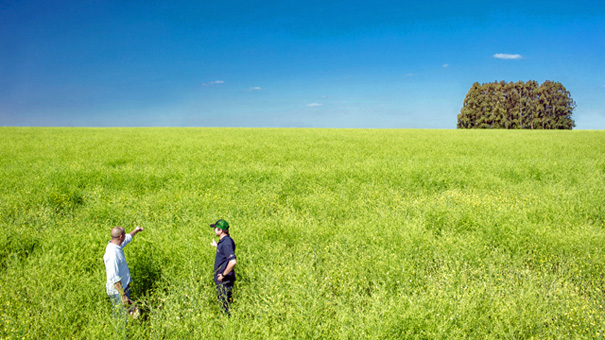UPM Biofuels Receives Uruguay's First RSB Sustainability Certification for Biofuel Feedstock
![]() Print this Article | Send to Colleague
Print this Article | Send to Colleague
UPM Biofuels, Finland, has received a sustainability certificate for the cultivation of the Brassica carinata crop - a new feedstock for biofuel production - in Uruguay. The RSB (The Roundtable on Sustainable Biomaterials) certification in biofuel feedstock production complements UPM Biofuels' existing sustainability certifications such as ISCC (International Sustainability and Carbon Certification) and RSB certifications for its UPM BioVerno biofuel production.
"RSB certification acknowledges our strong commitment to sustainability in all operations, now also in biofuel feedstock production with local farmers. This is also the first RSB certificate in Uruguay and creates new sustainable practices for agriculture," said Liisa Ranta, manager, Sustainability, UPM Biofuels Development.
RSB is one of the European Commission's approved voluntary schemes, which can be used to show compliance with the EU Renewable Energy Directive's sustainability criteria. In addition to EU RED criteria, the sustainability of biofuels is evaluated against 12 principles, which have been approved by a wide variety of stakeholders, including NGOs and UN agencies. In addition to greenhouse gas savings, compared with fossil fuels, RSB principles cover biodiversity, human rights, and environmental and social responsibility throughout the value chain.
"The RSB commends UPM for its continued commitment to producing sustainable biofuel. They have demonstrated leadership in the sector, being the first to receive RSB certification for the production of biofuel from wood based feedstocks and are now leading the way in Uruguay with their Brassica carinata certification. This results in reduced greenhouse gas emissions while meeting the highest standards of sustainability and transparency," said Rolf Hogan, RSB's executive director.

Photo above shows Brassica carinata winter cropping in Paysandu, Uruguay.
Brassica carinata is an oilseed crop specially designed for sustainable production of biofuels. UPM Biofuels has been developing and testing a new type of biofuel feedstock concept by growing Brassica carinata as a secondary crop in South America. The crop works well in the climatic and agricultural conditions of Uruguay and has been tested by local farmers. Brassica carinata cultivation adds value to their use of existing agricultural land as it will be used productively also in winter.
The RSB is a peer-reviewed organization that offers advisory, membership, and certification services for sustainable biomaterials on a global scale. The RSB, its member network, partnerships, and certified projects represent best practice in sustainability and promote the development of a healthy bioeconomy. More information is available online.
For further information, contact Rolf Hogan rolf.hogan@rsb.org at RSB.


